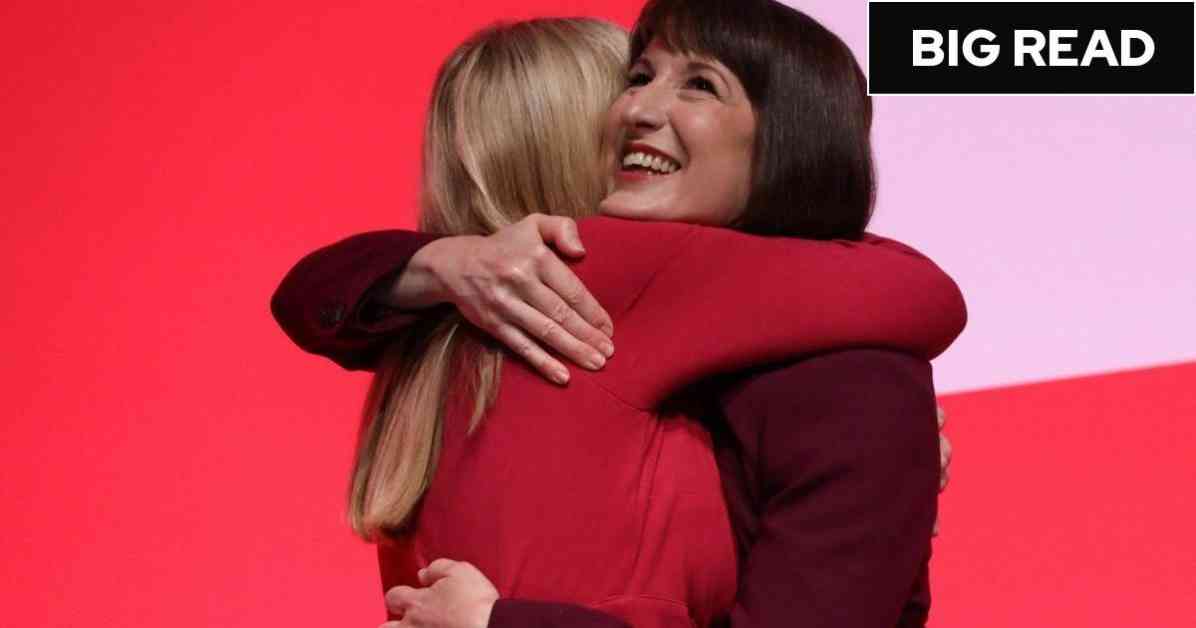Navigating Labour Tensions: Gray and Winter Fuel Debacle
As the Labour party conference unfolds this year, there is a mix of emotions among attendees. For those who have been through years of opposition, there is a sense of relief that the party is finally back in power after 14 long years. This shift in dynamics has brought about a renewed sense of importance to the conference, where discussions and decisions carry more weight than before.
One long-standing MP reminisced about the differences between the current conference and the last one they attended while in government. Back then, the concept of taking selfies with hundreds of people was unheard of, and the most advanced technology they had to deal with was the BlackBerry. The contrast highlights how much has changed in the political landscape over the years.
The conference itself has grown significantly in size, with lobbyists and business leaders flocking to Liverpool to engage with ministers and shape policy discussions. While some activists are excited about the opportunities this presents, others are grappling with a sense of unease and frustration.
Many insiders, including MPs, advisers, and party members, are expressing disbelief at what they perceive as a series of missteps and controversies. The decision to cut winter fuel payments for most pensioners has sparked backlash, with some viewing it as a deliberate provocation rather than a well-thought-out policy move. Additionally, revelations about ministerial perks and leaks targeting No 10 chief of staff Sue Gray have further fueled discontent within the party.
The prevailing atmosphere at the conference is far from positive, with concerns about the handling of various issues and a lack of foresight among Labour’s top leadership. The decision to appoint Sue Gray, in particular, has raised eyebrows and led to internal divisions. Despite the controversies surrounding her appointment, party leader Sir Keir Starmer and his allies have stood by their decision, refusing to cooperate with a civil service investigation into the matter.
The ongoing donations controversy, including revelations about hospitality gifts received by Sir Keir, has added to the sense of discord within the party. Questions about transparency and accountability have put the leadership under scrutiny, prompting calls for a reset in the party’s approach to governance.
Amidst the internal challenges facing the Labour government, there is a growing realization that a shift in strategy may be necessary to regain public trust and focus on delivering tangible results. The need for a retail policy or a significant narrative change is being discussed, but concrete solutions remain elusive at this juncture.
Sir Keir Starmer acknowledges the need to move away from a narrative of “doom and gloom” and present a more optimistic vision for the future. The upcoming conference serves as an opportunity to reshape the party’s messaging and rally support around its long-term objectives.
Despite the controversies surrounding Sue Gray, the chief of staff has opted to stay away from the conference to avoid drawing attention away from the government’s agenda. While rumors of discord between Gray and other key figures persist, some within the government remain steadfast in their support for her.
The ongoing briefing wars and internal tensions are seen as temporary hurdles that the government must navigate as it strives to fulfill its mandate. The upcoming Budget announcement is expected to refocus attention on policy priorities and demonstrate the government’s commitment to addressing pressing issues.
In conclusion, the Labour party conference is a pivotal moment for the government to address internal challenges, instill confidence in its leadership, and set a clear path forward. By acknowledging past missteps, embracing a more positive outlook, and prioritizing effective governance, Labour aims to regain momentum and deliver on its promises to the public.













